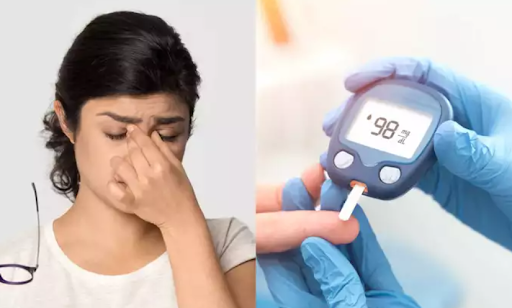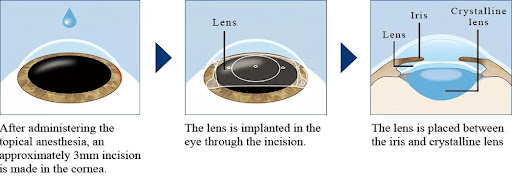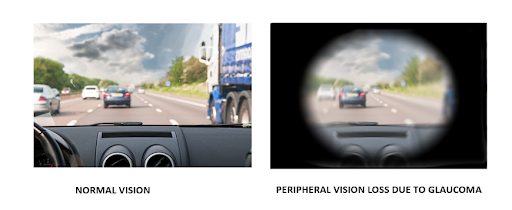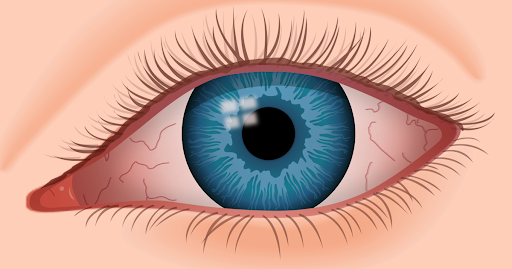Diabetes—beyond being a metabolic disorder—intricately intertwines with various aspects of health, particularly eye health. In this article we delve into the complexities of the link between diabetes and eye health, shedding light on preventive measures, treatment options, and real-life experiences. Additionally, we explore the role of Eyeonce Eye Clinic and the expertise of doctors, Dr. Paik Dong Won and Dr. Jung Sae Rom.
The Link Between Diabetes and Eye Health
The link between eye health and diabetes is profound and often manifests in a condition known as Diabetic Retinopathy. Diabetes, a metabolic disorder affecting insulin production or utilization, intricately intertwines with various aspects of health, especially the eyes.
Eyeonce Eye Clinic emerges as a crucial player in managing this intricate relationship. Specializing in diabetic eye care, Eyeonce Eye Clinic is dedicated to preserving and improving the vision of individuals with diabetes. Eyeonce stands out for its commitment to excellence, cutting-edge treatments, and comprehensive approach to eye health for diabetic patients.
Signs and Symptoms
Recognizing the signs and symptoms that your eyes have been affected by diabetes is crucial for early detection and intervention. Here are some indicators that individuals with diabetes should be mindful of:
- Blurred Vision – One of the early signs is a gradual or sudden blurring of vision, making it challenging to see clearly.
- Fluctuations in Eyesight – Sudden changes in eyesight or difficulty in focusing on objects may indicate diabetic eye complications.
- Floaters and Spots – The presence of floaters or dark spots in your field of vision can be a sign of diabetic retinopathy, a common complication.
- Eye Pain or Pressure – Diabetic eye issues may cause discomfort, pain, or a feeling of pressure in the eyes.
- Difficulty Seeing at Night – Night vision problems or increased sensitivity to light could be indicative of diabetic eye complications.
- Color Vision Changes – Diabetes can affect color perception, changing how you perceive and distinguish colors.
- Frequent Changes in Prescription Glasses – If you notice the need for frequent changes in your eyeglass prescription, it might signal diabetes-related vision changes.
- Partial or Total Vision Loss – In severe cases, untreated diabetic eye complications can lead to partial or total vision loss.
It is important to note that these symptoms may not always be exclusive to diabetes, but when experienced in conjunction with diabetes, they warrant immediate attention. Regular eye check-ups with a trusted eye center like Eyeonce Eye Clinic, play a role in early detection and effective management of eye-related issues. If you notice any of these symptoms, seek prompt medical advice to preserve your vision.
Eye Concerns Associated with Diabetes
Diabetes can significantly impact eye health, leading to various eye diseases. Here are some common eye conditions associated with diabetes:
- Diabetic Retinopathy – This is a prevalent diabetic eye disease. It occurs when prolonged high blood sugar levels damage the blood vessels in the retina, leading to vision impairment or even blindness if left untreated.
- Diabetic Macular Edema (DME) – DME is a complication of diabetic retinopathy where fluid accumulates in the macula, the central part of the retina. This can result in distorted or blurred vision.
- Cataracts – Diabetes increases the risk of developing cataracts, a clouding of the eye’s lens. Individuals with diabetes may experience cataracts at an earlier age and have a faster progression.
- Glaucoma – Diabetes is associated with an increased risk of glaucoma, a condition where increased pressure in the eye can damage the optic nerve, leading to vision loss.
- Blurred Vision – Consistently high blood sugar levels can cause temporary blurred vision, which typically resolves with improved diabetes management.
- Double Vision – Diabetes can affect the nerves controlling eye muscles, leading to double vision or difficulty coordinating eye movements.
- Dry Eyes – Individuals with diabetes may experience dry eyes due to nerve damage affecting tear production. This can cause discomfort, irritation, and an increased risk of eye infections.
- Retinal Vein Occlusion – Diabetes can contribute to the blockage of retinal blood vessels, leading to retinal vein occlusion and potential vision loss.
- Infections – Weakened immune function in diabetes increases the susceptibility to eye infections, including conjunctivitis (pink eye) and styes.
- Corneal Problems – Diabetes may affect the cornea, leading to conditions such as corneal ulcers, which can cause pain, redness, and vision issues.
Individuals with diabetes need to undergo regular eye examinations, at least annually, to detect and address these conditions in their early stages. Early intervention and proper management can significantly reduce the risk of vision loss associated with diabetes-related eye diseases. If any changes in vision or eye discomfort are noticed, seeking prompt medical attention is crucial for optimal eye health.
When Diabetes Affects Your Eyes
If you notice signs that your eyes have been affected by diabetes, it is crucial to take prompt action to protect your vision. Here are the steps to follow:
- Schedule an Eye Exam – Immediately make an appointment with an eye care specialist or an ophthalmologist. Regular eye check-ups are essential, especially for individuals with diabetes.
- Communicate Symptoms – Communicate the symptoms you have noticed, such as blurred vision, floaters, or discomfort. Providing detailed information helps the eye care professional make an accurate diagnosis.
- Maintain Blood Sugar Levels – Work closely with your healthcare team to manage and stabilize your blood sugar levels. Consistent blood sugar control is crucial in preventing and managing diabetic eye complications.
- Follow Treatment Recommendations – If diagnosed with a diabetic eye condition, adhere to the recommended treatment plan. This may include medications, lifestyle adjustments, or, in some cases, surgical interventions.
- Manage Blood Pressure and Cholesterol – Control other risk factors like high blood pressure and high cholesterol. Maintaining overall health contributes to better eye health.
- Adopt a Healthy Lifestyle – Embrace a healthy lifestyle with a balanced diet, regular exercise, and adequate sleep. These factors positively impact overall well-being, including eye health.
- Quit Smoking – If you smoke, consider quitting. Smoking can exacerbate the effects of diabetes on eye health and increase the risk of complications.
- Use Protective Eyewear – Wear sunglasses that offer UV protection to shield your eyes from harmful sun rays. This can help in preventing further damage.
- Attend Follow-Up Appointments – Regularly attend follow-up appointments with your eye care specialist to monitor the progress of treatment and make necessary adjustments.
- Stay Informed – Educate yourself about diabetes-related eye conditions. Understanding your condition empowers you to make informed decisions about your eye health.
Remember, early detection and proactive management are key to preserving vision Learn more about how diabetes can affect your vision. Book an appointment with Dr. Paik Dong Won and Dr. Jung Sae Rom today!
Why choose Eyeonce Eye Clinic Gangnam for diabetes-related eye concerns treatment?
Utmost Patient Care
Our eye care professionals and staff ensure to give you your money’s worth. We guarantee you receive the best medication possible and assure you that you are guided and understood, making you feel comfortable and confident at every step.
Comprehensive Consultation
Eyeonce Eye Clinic offers comprehensive eye examinations to evaluate your condition and determine the best eye strain treatment. Our ophthalmologists take their time to cater to your questions and address your concerns, ensuring you make an informed decision about our vision correction options.
Expert Eye Doctors
Our ophthalmologists, Head Director Dr. Paik Dong Won and Medical Director Dr. Jung Sae Rom, are highly knowledgeable and adept in treating eye strain. They always use the latest techniques and technologies to ensure optimal results.
Frequently Asked Questions (FAQs)
Yes. If left untreated, diabetic eye complications can result in permanent vision loss. Early detection and management are crucial.
Annual eye check-ups are recommended for individuals with diabetes to monitor and detect any early signs of complications.
Maintaining a stable blood sugar level is key to preventing diabetic eye complications and preserving vision.
Conclusion
In navigating the intricate link between diabetes and eye health, proactive measures, regular check-ups, and a holistic approach to diabetes management emerge as key strategies. The journey to safeguarding your vision involves understanding the risks, adopting preventive measures, and seeking timely interventions when needed. Learn how you can prevent diabetes from damaging your vision. Book a consultation with Eyeonce’s expert doctors today!



